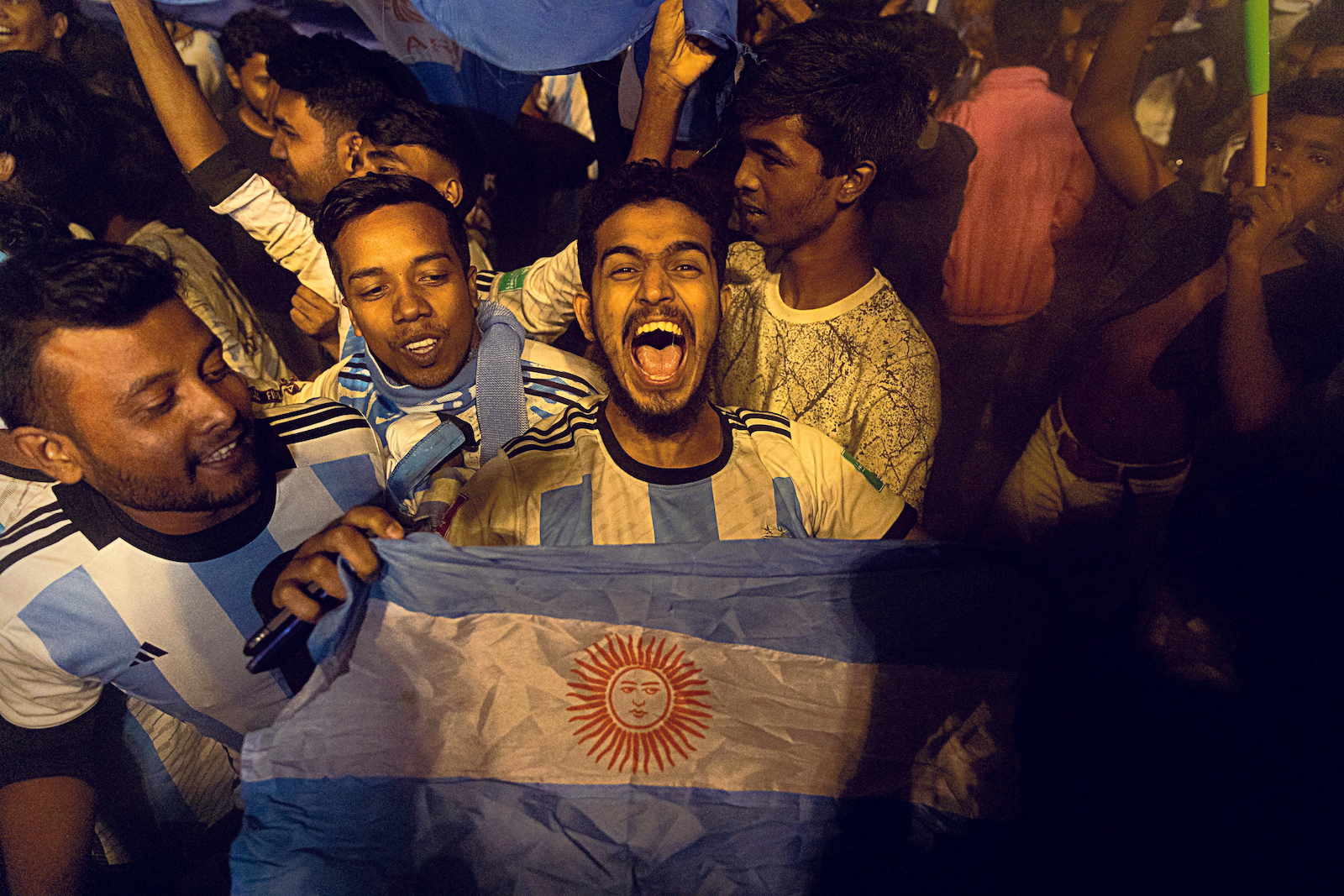
Culture
Qatar United the World Through Sport
In the months prior to the first whistle blown at the 2022 World Cup, international media produced mostly negative stories in the lead-up to the tournament watched by billions around the globe.
Whether truthful or contrived, Qatar was an easy target. The first Middle Eastern nation to host the world’s largest sporting event was certain to be scrutinized by the West, even under the best of circumstances.
But what Qatar encountered was an assault.
To be clear, it wasn’t all negative. Once the matches commenced, some media outlets did acknowledge and praise the thrilling matches, compelling storylines, and unlikely stars, heroes, and teams that were cheered on by fans from around the world.
Others acknowledged the record television ratings– an estimated 5 billion people tuned into the games with huge ratings in the United States, a nation whose soccer culture is still in its infancy.
But many journalists couldn’t help themselves. Their admiration for the job undertaken by Qatar and its many achievements – massive construction, vast security, and meticulous execution – was short-lived.
For years leading up to the games, Qatar’s regional and political adversaries spent big on public relations consultants who built out negative narratives – some real, some imagined, and appallingly, many that were race-fueled – and then peddled them to international media outlets. The goal was to trigger outrage and propagate clickbait.
“Since we won the honor of hosting the World Cup, Qatar has been subjected to an unprecedented campaign that no host country has ever faced,” said Qatar’s Emir, Sheikh Tamim bin Hamad Al Thani. “It soon became clear to us that the campaign continues, expands and includes fabrication and double standards, until it reached a level of ferocity that made many question, unfortunately, about the real reasons and motives behind this campaign.”
The vitriol and falsities ricocheting around the world notwithstanding, soccer fans were elated.
On the ground in Doha, the fan experience proved to be modern, fun, and safe. Though attendees were blocked from consuming alcohol in or around the fields of play, what initially seemed like a setback proved fortuitous. There were no reports of hooligan-related violence. And the billions who tuned in witnessed what was arguably the most riveting tournament in World Cup history.
What was most remarkable was how – in the face of unprecedented criticism, a well-coordinated influence operation, and an international press corps committed to dragging the first Middle Eastern host nation through the mud – sport brought the world together.
Morocco’s thrilling catapult into the penultimate round of the competition was a sterling example of how the game can connect nations on the pitch through a shared sense of purpose and achievement.
Entering the tournament as the world’s 22nd-ranked team, Morocco defied the odds to beat some of the best teams from the finest clubs, taking fans with them on a thrilling run that buoyed the spirits of Arab and African nations alike.
“We had a dream, of course,” team captain Romain Saiss said. “Dreaming is free. So, we can dream. But, after, to do it is different. We put a lot of energy into each game — physically and mentally it’s hard, but in the end, it’s so good.”
And it was especially good to be a fan taking it all in. Fans after all are the beating heart of the World Cup. They erupt in joy watching their heroes play like gods and collapse like stars when defeat knocks at their door. Their fervor and heartache continued in Qatar until the conclusion of the exciting and memorable final between France and Argentina, where one of the greatest soccer players of all time, Lionel Messi, finally took the prize that had eluded him throughout his illustrious career.
As anyone who cheers on a team of any sport – whether zealously or as a casual observer – knows all too well, the fellowship manifested through athletic competitions is a sensation without parallel. It is immune to the media and to politicians. It is part of us, in our blood and deep in our souls.
The real story of the World Cup in Qatar was that of an underdog host country that delivered an experience few others could; a story of a thrilling sporting event that followed a despair-inducing pandemic; a story of transcendent athleticism; a story of billions of fans united through the cheering their teams and countries; and a story of one of the greatest soccer players of all time fulfilling the goal of a lifetime.
That was the 2022 World Cup in Qatar. You may not see another like it.

